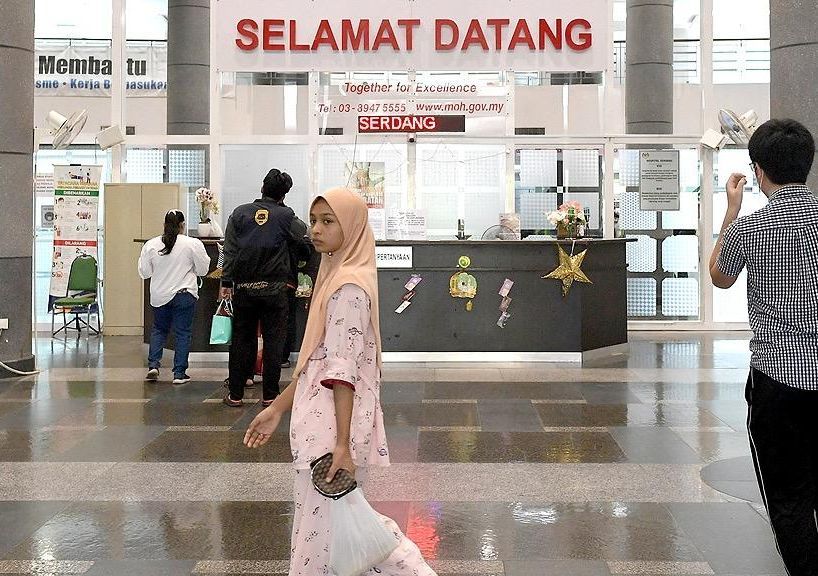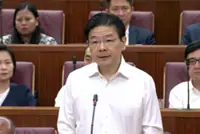
China’s bumpy economic recovery has become a global concern despite a slight comeback since late summer. In the second part of a series on China’s economy, analysts call for the resumption of overdue reforms to unleash growth. You can read part one here.
China’s lacklustre growth since reopening early this year has sparked a growing chorus of calls for greater reforms to address deep-rooted problems that could continue to weigh on economic prospects over the long run.
“Structural threats to economic stability have never been greater,” said the China Pathfinder Annual Scorecard, a flagship report jointly compiled by Rhodium Group and the Atlantic Council, on Wednesday.
Do you have questions about the biggest topics and trends from around the world? Get the answers with SCMP Knowledge, our new platform of curated content with explainers, FAQs, analyses and infographics brought to you by our award-winning team.
“The economic malaise that policymakers in Beijing are staring down now is not caused by cyclical factors like Covid, but by a failure to reform the country’s economic system,” the report said.
‘A matter of survival’: stronger state giants seen giving China a tech edge
It expects China’s economy to grow by less than 4 per cent in 2023, which is at the lower range of estimates by major international institutions and much lower than Beijing’s target of around 5 per cent.
“Given the lack of major reform announcements, year to date, similar weakness in 2024 should be expected, and growth may slacken even more next year as a result of adjustment pains if Beijing announces concrete reforms,” the report said.
China’s economy has shown signs of a comeback in the third quarter thanks to a slew of supportive policies unfurled since July to reinvigorate growth, which reached only 0.8 per cent in the second quarter compared with the first quarter.
But the property slump, ballooning local government debts, weak confidence in the private sector and foreign companies, as well as a rapidly ageing population have raised concerns that China may repeat Japan’s decade-long economic stagnation. And this could hinder Beijing’s goal, set in 2017, of achieving “socialist modernisation” by 2035.
A slower economic growth rate could also mean that China’s dethroning of the US as the world’s biggest economy “would not happen in this century, let alone this decade”, the report added.
“This change in expectations has global implications. For developing countries, the relative allure of liberal markets versus China’s “state capitalism” approach will shift, in ways that require policymaker and business leader attention.”
Chinese economists and former officials have also called for reforms, and expectations have mounted for a strong signal from top leaders in the run-up to the third plenum of the Communist Party’s 20th Congress.
These third plenums are convened around a year after a new party Central Committee is installed, and they traditionally revolve around economic issues.
Wei Jianing, chief economist with the China Industry Development Promotion Association, said that the only way for China to avoid Japanification is by seizing the opportunity to embrace reform and “to hold high the flag of reform and opening up” while going “all out in pushing structural reforms”, according to a report by The Paper, an online publication owned by Shanghai United Media Group.
“If we can make it, we are set to regain the reform dividend and spur economic growth,” Wei added.
Yang Weimin, a former deputy director of the Office of the Central Leading Group for Financial and Economic Affairs, said at last month’s Bund Summit in Shanghai that the current situation called for a course correction in policies.
“All ministries and provincial authorities should review the host of measures, including those introduced during the pandemic, to rectify those that run counter to the principle of the market’s decisive role in resource allocation and those that interfere with or restrict business operations and consumption,” Yang said.
“Rectifying policies is indeed a reform,” he added.
China’s manufacturing rebounds in latest sign of stabilising economy
The Pathfinder report also said Chinese leaders should allow for “robust” debate on structural slowdown and reform, as one of the measures to instil optimism for economic growth in 2024.
“It is a positive sign that Chinese economists are discussing the state of progress on macroeconomic reforms, but there is a long path between an academic discussion among economists and formal officials and the actual implementation of difficult structural reforms by China’s top leadership,” the report said.
Hopes are growing after Xi’s speech at a September Politburo study session dedicated to international trade and opening up was widely interpreted as being pro-economy and pro-business.
“Modest pledges of reform have been rolled out regularly this year, so there is reason to expect some more at the third plenum. Indeed, since none of the reforms thus far are sufficient to deal with the big problems now in evidence, the odds of a more significant announcement are rising,” said Daniel Rosen, a partner and co-founder of Rhodium Group.
The report also said that China had strayed further from market norms in the openness of its innovation system and that it has not improved market competition, as seen in the rise of state ownership in the overall economy and in the fickle regulatory environment.
“In the past, Beijing was able to kick the policy can down the road; today, they are at the end of that road and need to address the present problems,” the report said.
It also suggested that Beijing stop publicising “emblematic” GDP growth targets and instead reveal its employment and inflation goals, to help curtail any “political imperative” and minimise the risk of frivolous efforts to grow GDP. The report said this could be “one of the best things Beijing can do to improve the quality of growth and policymaking”.
It also said the central government should bail out heavily indebted local governments and put them on a stronger fiscal footing.
“The central government must absorb local-expenditure responsibilities or identify responsible resourcing strategies,” it said.
More from South China Morning Post:
- China’s exporters navigate bumpy road back overseas amid turbulent economic recovery
- China’s indebted local governments splash out billions to save struggling small banks
- China sees travel booming in first ‘golden week’ holiday since end of Covid restrictions
- China’s Xi Jinping appeals to decades-old mantra of reform and opening up, as economy slows and foreign investors ponder leaving
- China promises to make business, life in Shanghai easier for foreign companies
For the latest news from the South China Morning Post download our mobile app. Copyright 2023.











































